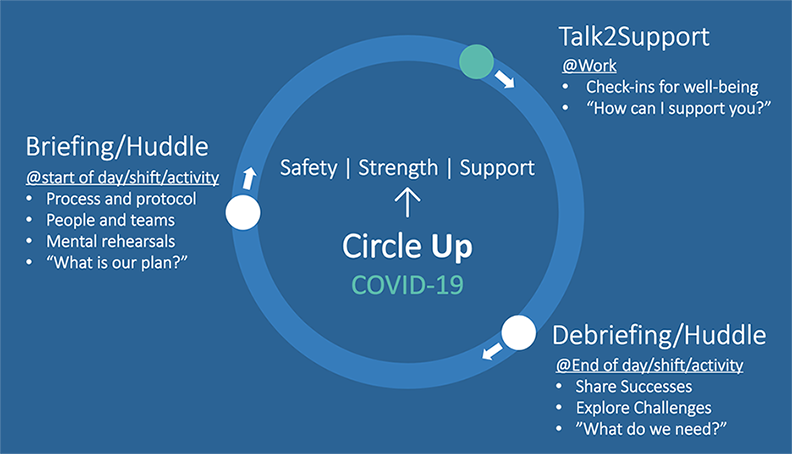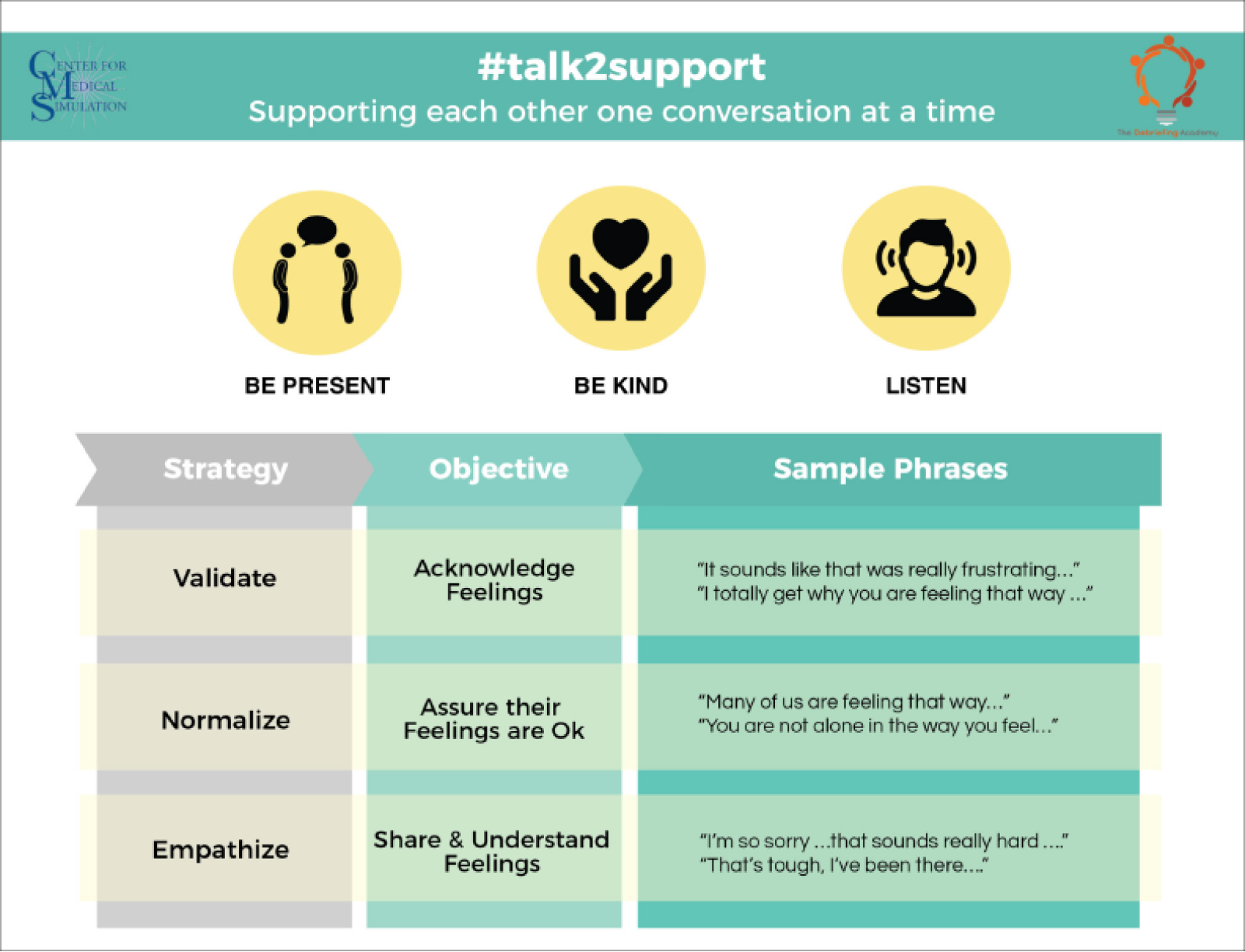Circle Up: New approach to briefings for clinical teams
Boston’s Center for Medical Simulation has developed Circle Up, a system of briefings and one-on-one conversations, to help teams function well under difficult conditions, such as changing protocols, temporary facilities, new coworkers and equipment shortages, brought on by the COVID-19 pandemic. Clinical teams use briefings at the start and end of each shift to process events, transmit information, make plans, rehearse new protocols and share successes. Circle Up also includes a framework for checking in with co-workers mid-shift for mutual support.

Chris Roussin, a senior director at the Center, says, “As we saw the COVID-19 crisis taking shape in Italy and then New York City, we knew the ethic of ‘work hard and we will get through this’ would not be enough this time. The trauma that would result from trying to survive that way might crush the cultures, the organizations, the teams and the people involved.’” Roussin and others at the Center set out to design a system that would “proactively protect people from that trauma or at least give them some very substantial coping mechanisms to get through it.” Circle Up draws on mutual support and clear communication to help teams deliver high quality care.
The first briefing or huddle at the start of the shift (or day) focuses on preparing for the work ahead. Have there been important changes since our last shift? Do we have new protocols? New team members? Does everyone have what they need? Do we want to rehearse anything new before going out on the floor? During the briefing, team members are reminded and encouraged to check-in with each other, especially if someone seems to be in need, to listen and offer support.

In a debriefing at the shift’s end, team members share how things went. Did we have problems that should be discussed? If so, what were the root causes? Did we have successes we can learn from? Did we do anything new today that would help other teams? A scribe records and transmits the information to the next team on duty so they can incorporate the learning in their briefing. Shift to shift, the cycle of briefings and debriefings provides feedback and opportunities to continuously improve care.
Personal check-ins, referred to as Talk2Support (a program co-designed with The Debriefing Academy), happen spontaneously, as needed during the shift. These can be simply a discussion about something that happened, an acknowledgement of shared experience — “Many of us feel that way” — or an offer of help.
Mutual support is at the crux of this approach. Roussin explains, “Circle Up features elements designed to promote psychological health first and then, through the support for psychological health, foster sustained high quality care and high quality adaptation in this very difficult moment.”
On its website, the non-profit Center for Medical Simulation offers detailed information about Circle Up, including a 90-minute webinar, currently free of charge. On-site team training in Circle Up is also available for a fee.